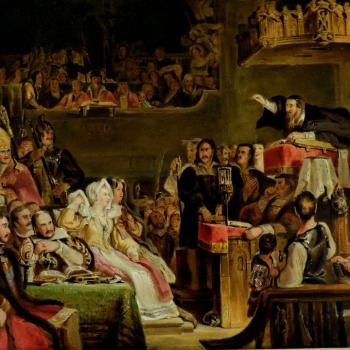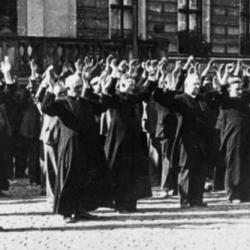Priest, Prophet, and King
When we are baptized into Christianity, each of us takes on the mantle of becoming a “Priest, Prophet, and King.” But what does this mean to us, and how does it affect our lives? What do we do with this? Is it only for men?
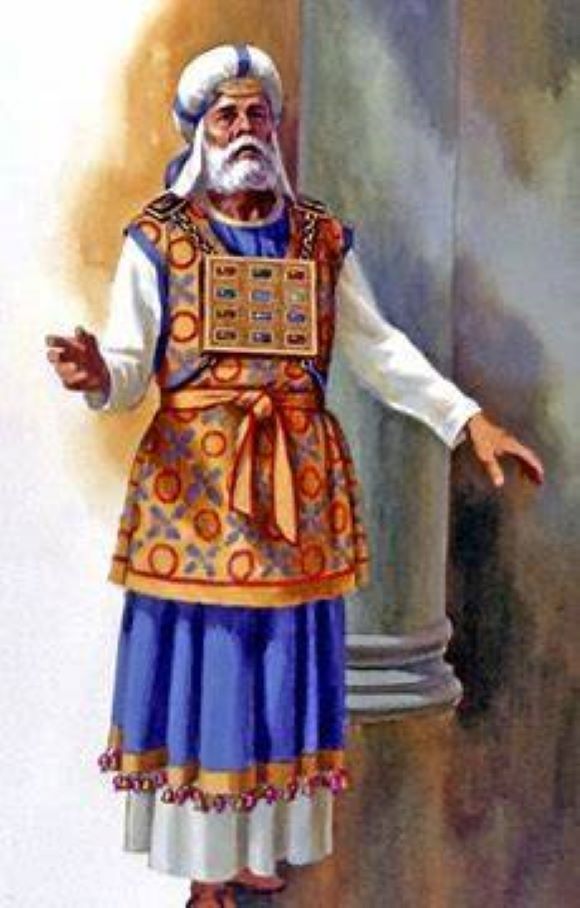
Priest
A biblical priest was someone chosen by God to bring the people’s sacrifices to God and, conversely, to bring the people to God. The priest (then as now) is the mediator, the go-between between humans and God. The priest is a conduit of blessings. In general, women are natural conduits to these blessings because they have the ability to bring God’s creation, children, into the world—something a man does not have the ability to do. And we, at the end of every Mass, are sent forth to “love and serve the Lord and each other.” We are to become that conduit of grace, love, and goodness—of God—to others.

King
A king is a natural-born Stage Manager of lives. They coordinate the world around them. They create an order where there is natural chaos. It is the job of a king to create order by establishing offices or departments for people who are skilled and qualified in their jobs. They also have a natural mandate to keep their people from harm. Albeit through armies, rules, or sentries, a king’s job is to always be on the lookout for the enemy in whatever form they come and be proactive in keeping their people safely out of harm’s reach. We are each and every one of us a “king” in not only our own households but also our own lives. Our job, right, and expectation is to order our lives accordingly. We are to be on guard from things that cannot only physically and mentally harm us but also spiritually damage us. Much as we were given life by God, after being baptized, we are given the mantle of responsibility to keep ourselves and those around us safe. Notice that we are not given the title of “queen.” A queen has a very different responsibility. Biblically and before written history, it has always been the responsibility of the person in the office of queen to be the advisor to the king. King and queen in these contexts are not to be viewed as sexist, but as an office.
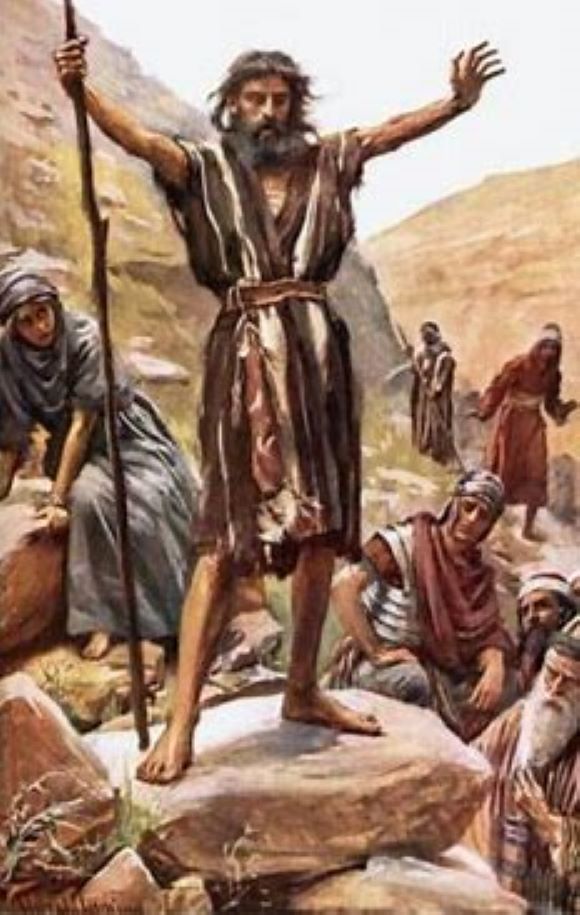
Prophet
A prophet bears the truth of God. Because they are in contact with the Almighty, they are usually a little out of step with society at large. Back in Biblical times, they were called “nabi,” or “one who is mad.” In the Bible, you had two very different kinds of prophets. There were those who actually held the office of prophet in the kingdom. Think of a prophet in King Jeroboam’s world as a department head. They had different offices of prophets. An office for predicting finance, and another for waging war on a neighbor. They had prophets forecasting the future of the crops and livestock futures. These were not prophets of God, however. These office prophets were a lineage. If your dad was a prophet for the kingdom, chances are strong, you’d slip right into the office next door.
A prophet of God came from everyday life. God’s prophets might work for the temple, but they were just as likely to be fishermen, tent makers, or shepherds. God’s prophets were people who heard the voice of God and responded, just as we are called to do. Not all of the prophets of God heard the actual voice of God. Some heard Him through dreams, like Daniel or St. Joseph. Others heard Him speak to them through the scriptures—again, much as we do today.
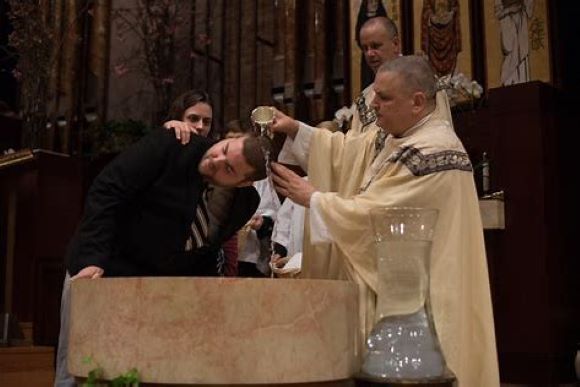
What Does a Prophet Have to Say or Do?
In the Old Testament, a prophet of God would typically, but not always, bring word of doom or chastisement. Think of Jonah, Jeremiah, and, yes, Amos. Amos had a vision of the demise of Israel as they knew it under King Jeroboam. He foresaw (of all things) builders’ plum bob—a weight that hangs down from a long string to see if a wall is perfectly straight up and down or if it is leaning, possibly too far, and will eventually fall. No one wanted to take Amos seriously because he was nothing but a shepherd. But, true to form, God picks the lowly to speak for Him.
Who else were lowly working men (and women) put to work for God as Priests, Prophets, and Kings? The Apostles. Think about it. You have a bunch of rough-and-tumble fishermen, a tax collector, and a mercenary… all sent out by Jesus, two by two, to act in His stead. Jesus is training them in how to use these offices in the way we are meant to use them. And what was the outcome? They “went off and preached repentance… driving out many demons, and anointing many with oil who were sick, and cured them” (Mark 6: 12-13).
So, the next time you think about who and what you are, try to remember your baptismal right. You are a Priest. You are a Prophet. You are a King. Do you act that way? Do you fulfill what you are supposed to do? Do you act as a conduit to God and his gifts? Do you coordinate your life in a certain way and keep it safe from evil? Are you in contact with God and what He wants to say to you and others through you? If you aren’t, it’s not too late to start.




